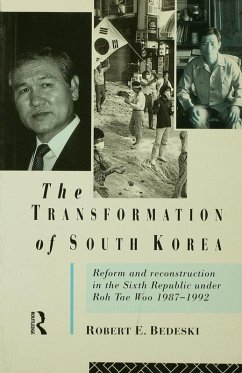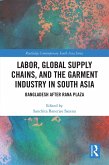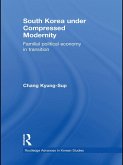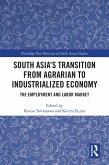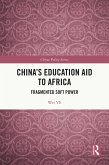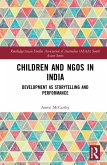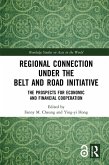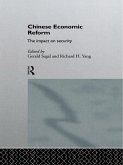Robert Bedeski
The Transformation of South Korea (eBook, ePUB)
Reform and Reconstitution in the Sixth Republic Under Roh Tae Woo, 1987-1992
74,95 €
74,95 €
inkl. MwSt.
Sofort per Download lieferbar

37 °P sammeln
74,95 €
Als Download kaufen

74,95 €
inkl. MwSt.
Sofort per Download lieferbar

37 °P sammeln
Jetzt verschenken
Alle Infos zum eBook verschenken
74,95 €
inkl. MwSt.
Sofort per Download lieferbar
Alle Infos zum eBook verschenken

37 °P sammeln
Robert Bedeski
The Transformation of South Korea (eBook, ePUB)
Reform and Reconstitution in the Sixth Republic Under Roh Tae Woo, 1987-1992
- Format: ePub
- Merkliste
- Auf die Merkliste
- Bewerten Bewerten
- Teilen
- Produkt teilen
- Produkterinnerung
- Produkterinnerung

Bitte loggen Sie sich zunächst in Ihr Kundenkonto ein oder registrieren Sie sich bei
bücher.de, um das eBook-Abo tolino select nutzen zu können.
Hier können Sie sich einloggen
Hier können Sie sich einloggen
Sie sind bereits eingeloggt. Klicken Sie auf 2. tolino select Abo, um fortzufahren.

Bitte loggen Sie sich zunächst in Ihr Kundenkonto ein oder registrieren Sie sich bei bücher.de, um das eBook-Abo tolino select nutzen zu können.
A thorough analysis of the institutions of government in South Korea, their transformation by the introduction of political pluralism, and the impact of that on the country's economy.
- Geräte: eReader
- mit Kopierschutz
- eBook Hilfe
- Größe: 1.5MB
Andere Kunden interessierten sich auch für
![Labor, Global Supply Chains, and the Garment Industry in South Asia (eBook, ePUB) Labor, Global Supply Chains, and the Garment Industry in South Asia (eBook, ePUB)]() Labor, Global Supply Chains, and the Garment Industry in South Asia (eBook, ePUB)41,95 €
Labor, Global Supply Chains, and the Garment Industry in South Asia (eBook, ePUB)41,95 €![South Korea under Compressed Modernity (eBook, ePUB) South Korea under Compressed Modernity (eBook, ePUB)]() Kyung-Sup ChangSouth Korea under Compressed Modernity (eBook, ePUB)37,95 €
Kyung-Sup ChangSouth Korea under Compressed Modernity (eBook, ePUB)37,95 €![South Asia's Transition from Agrarian to Industrialized Economy (eBook, ePUB) South Asia's Transition from Agrarian to Industrialized Economy (eBook, ePUB)]() South Asia's Transition from Agrarian to Industrialized Economy (eBook, ePUB)41,95 €
South Asia's Transition from Agrarian to Industrialized Economy (eBook, ePUB)41,95 €![China's Education Aid to Africa (eBook, ePUB) China's Education Aid to Africa (eBook, ePUB)]() Wei YeChina's Education Aid to Africa (eBook, ePUB)41,95 €
Wei YeChina's Education Aid to Africa (eBook, ePUB)41,95 €![Children and NGOs in India (eBook, ePUB) Children and NGOs in India (eBook, ePUB)]() Annie McCarthyChildren and NGOs in India (eBook, ePUB)39,95 €
Annie McCarthyChildren and NGOs in India (eBook, ePUB)39,95 €![Regional Connection under the Belt and Road Initiative (eBook, ePUB) Regional Connection under the Belt and Road Initiative (eBook, ePUB)]() Regional Connection under the Belt and Road Initiative (eBook, ePUB)42,95 €
Regional Connection under the Belt and Road Initiative (eBook, ePUB)42,95 €![Chinese Economic Reform (eBook, ePUB) Chinese Economic Reform (eBook, ePUB)]() Chinese Economic Reform (eBook, ePUB)41,95 €
Chinese Economic Reform (eBook, ePUB)41,95 €-
-
-
A thorough analysis of the institutions of government in South Korea, their transformation by the introduction of political pluralism, and the impact of that on the country's economy.
Dieser Download kann aus rechtlichen Gründen nur mit Rechnungsadresse in A, B, BG, CY, CZ, D, DK, EW, E, FIN, F, GR, HR, H, IRL, I, LT, L, LR, M, NL, PL, P, R, S, SLO, SK ausgeliefert werden.
Produktdetails
- Produktdetails
- Verlag: Taylor & Francis
- Seitenzahl: 208
- Erscheinungstermin: 1. November 2002
- Englisch
- ISBN-13: 9781134845149
- Artikelnr.: 41522477
- Verlag: Taylor & Francis
- Seitenzahl: 208
- Erscheinungstermin: 1. November 2002
- Englisch
- ISBN-13: 9781134845149
- Artikelnr.: 41522477
- Herstellerkennzeichnung Die Herstellerinformationen sind derzeit nicht verfügbar.
Robert E. Bedeski has lived and worked in various parts of East Asia since 1959, has taught and written about the comparative politics and international politics of the region. He is now Professor in the Department of Political Science, University of Victoria.
Preface
List of abbreviations
1 State reform in South Korea
Introduction
Background of the modem Korean state
Conflict and political reform
The first five Republics: background to democratization
The Third and Fourth Republics: economic and social transformation under Park Chung Hee
Transition to the Fifth Republic
The Sixth Republic and the Roh presidency
Summary
2 The institutions of government
Foundations of the modem Korean state
Government structure
weak v. strong institutions
Liquidation of the legacy of the Fifth Republic
Constitutional reform in the Sixth Republic: the presidency and local government
The 1992 presidential elections
The election results
3 Political parties and South Korean politics
The character of political parties in South Korea
The institutionalization of political parties
The development of political parties in South Korea
The authority crisis of 1985
Creating a new ruling party
Political parties and liberalization
Conclusions
4 The economic context of reform
Introduction
Towards balanced growth: maturing of a developing economy
Labour
Capital
the chaebol and the state
Agriculture reform
The economic dimensions of social conflict
5 The social context of Korean politics
Divisions and unity in South Korean society
Factors of social change
Pluralism and equality
Education and Korean society
Social conflict
catalyst for democracy?
Conclusion
6 State reform in a comparative context
State
building and social engineering in South Korea
What is state reform?
Taiwan
another 'piecemeal experiment'
The People's Republic of China
North Korean politics
the Kim fl Song dictatorship
The USSR and its successor, Russia
Implications
Conclusions
7 South Korea's international environment and foreign policy
South Korea as a rising middle power
South Korea foreign policy: Nordpolitik
An assessment of Nordpolitik
8 Conclusions
Appendix: Roh Tae Woo's declaration of 29 June 1987
Notes
Selective bibliography
Index.
List of abbreviations
1 State reform in South Korea
Introduction
Background of the modem Korean state
Conflict and political reform
The first five Republics: background to democratization
The Third and Fourth Republics: economic and social transformation under Park Chung Hee
Transition to the Fifth Republic
The Sixth Republic and the Roh presidency
Summary
2 The institutions of government
Foundations of the modem Korean state
Government structure
weak v. strong institutions
Liquidation of the legacy of the Fifth Republic
Constitutional reform in the Sixth Republic: the presidency and local government
The 1992 presidential elections
The election results
3 Political parties and South Korean politics
The character of political parties in South Korea
The institutionalization of political parties
The development of political parties in South Korea
The authority crisis of 1985
Creating a new ruling party
Political parties and liberalization
Conclusions
4 The economic context of reform
Introduction
Towards balanced growth: maturing of a developing economy
Labour
Capital
the chaebol and the state
Agriculture reform
The economic dimensions of social conflict
5 The social context of Korean politics
Divisions and unity in South Korean society
Factors of social change
Pluralism and equality
Education and Korean society
Social conflict
catalyst for democracy?
Conclusion
6 State reform in a comparative context
State
building and social engineering in South Korea
What is state reform?
Taiwan
another 'piecemeal experiment'
The People's Republic of China
North Korean politics
the Kim fl Song dictatorship
The USSR and its successor, Russia
Implications
Conclusions
7 South Korea's international environment and foreign policy
South Korea as a rising middle power
South Korea foreign policy: Nordpolitik
An assessment of Nordpolitik
8 Conclusions
Appendix: Roh Tae Woo's declaration of 29 June 1987
Notes
Selective bibliography
Index.
Preface
List of abbreviations
1 State reform in South Korea
Introduction
Background of the modem Korean state
Conflict and political reform
The first five Republics: background to democratization
The Third and Fourth Republics: economic and social transformation under Park Chung Hee
Transition to the Fifth Republic
The Sixth Republic and the Roh presidency
Summary
2 The institutions of government
Foundations of the modem Korean state
Government structure
weak v. strong institutions
Liquidation of the legacy of the Fifth Republic
Constitutional reform in the Sixth Republic: the presidency and local government
The 1992 presidential elections
The election results
3 Political parties and South Korean politics
The character of political parties in South Korea
The institutionalization of political parties
The development of political parties in South Korea
The authority crisis of 1985
Creating a new ruling party
Political parties and liberalization
Conclusions
4 The economic context of reform
Introduction
Towards balanced growth: maturing of a developing economy
Labour
Capital
the chaebol and the state
Agriculture reform
The economic dimensions of social conflict
5 The social context of Korean politics
Divisions and unity in South Korean society
Factors of social change
Pluralism and equality
Education and Korean society
Social conflict
catalyst for democracy?
Conclusion
6 State reform in a comparative context
State
building and social engineering in South Korea
What is state reform?
Taiwan
another 'piecemeal experiment'
The People's Republic of China
North Korean politics
the Kim fl Song dictatorship
The USSR and its successor, Russia
Implications
Conclusions
7 South Korea's international environment and foreign policy
South Korea as a rising middle power
South Korea foreign policy: Nordpolitik
An assessment of Nordpolitik
8 Conclusions
Appendix: Roh Tae Woo's declaration of 29 June 1987
Notes
Selective bibliography
Index.
List of abbreviations
1 State reform in South Korea
Introduction
Background of the modem Korean state
Conflict and political reform
The first five Republics: background to democratization
The Third and Fourth Republics: economic and social transformation under Park Chung Hee
Transition to the Fifth Republic
The Sixth Republic and the Roh presidency
Summary
2 The institutions of government
Foundations of the modem Korean state
Government structure
weak v. strong institutions
Liquidation of the legacy of the Fifth Republic
Constitutional reform in the Sixth Republic: the presidency and local government
The 1992 presidential elections
The election results
3 Political parties and South Korean politics
The character of political parties in South Korea
The institutionalization of political parties
The development of political parties in South Korea
The authority crisis of 1985
Creating a new ruling party
Political parties and liberalization
Conclusions
4 The economic context of reform
Introduction
Towards balanced growth: maturing of a developing economy
Labour
Capital
the chaebol and the state
Agriculture reform
The economic dimensions of social conflict
5 The social context of Korean politics
Divisions and unity in South Korean society
Factors of social change
Pluralism and equality
Education and Korean society
Social conflict
catalyst for democracy?
Conclusion
6 State reform in a comparative context
State
building and social engineering in South Korea
What is state reform?
Taiwan
another 'piecemeal experiment'
The People's Republic of China
North Korean politics
the Kim fl Song dictatorship
The USSR and its successor, Russia
Implications
Conclusions
7 South Korea's international environment and foreign policy
South Korea as a rising middle power
South Korea foreign policy: Nordpolitik
An assessment of Nordpolitik
8 Conclusions
Appendix: Roh Tae Woo's declaration of 29 June 1987
Notes
Selective bibliography
Index.
